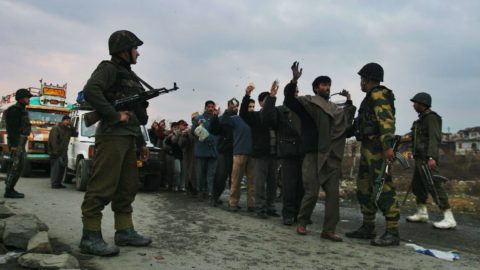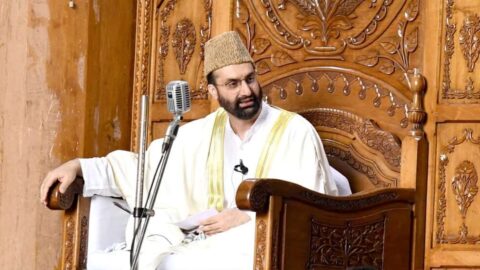A coalition of prominent Indian jurists, civil servants, and military veterans has accused the Modi…
India-backed Kashmir administration bans 25 books, including works by Arundhati Roy and A.G. Noorani
Writers, scholars raise concerns over shrinking space for dissent in Kashmir
SRINAGAR, Jammu and Kashmir — In a sweeping move that has sparked alarm among civil liberties advocates and scholars, the government of Indian-administered Kashmir has banned 25 books it says promote “false narratives,” glorify terrorism, and incite secessionism.
The notification, issued on August 5 by the Jammu and Kashmir Home Department, cites provisions from newly introduced Indian criminal and public safety laws to justify the banning of the books.
These include the Bharatiya Nyaya Sanhita (Indian Penal Code replacement) and the Bharatiya Nagarik Suraksha Sanhita (public security code), both part of a recent legal overhaul that experts say expands state power and limits civil liberties.
The banned titles include works by internationally acclaimed intellectuals such as Arundhati Roy, A.G. Noorani, Hafsa Kanjwal, and Ather Zia.
Also targeted are academic publishers like Routledge, Oxford University Press, and Stanford University Press.
According to the government order, these books allegedly distort historical facts, promote a “culture of grievance,” glorify terrorists, and incite youth toward “terrorist heroism.”
It claims the material has played a “critical role in misguiding the youth” of Jammu and Kashmir and poses a threat to India’s sovereignty and internal security.
However, these works have been widely cited in academic and policy circles and form part of many university syllabi across the world.
Among the banned titles are Azadi by Arundhati Roy, Kashmir: The Case for Freedom (co-authored by Roy, Tariq Ali, and others), Colonizing Kashmir by Hafsa Kanjwal, and The Kashmir Dispute 1947–2012 by Noorani.
Civil rights advocates argue that the ban is part of an escalating crackdown on dissent in Kashmir since the abrogation of Article 370 in 2019.
“This move reflects a deepening intolerance toward academic and intellectual engagement with the Kashmir dispute,” said a Kashmir-based university professor who requested anonymity.
“These are not tracts of terrorism; they’re scholarly texts and memoirs. They have changed facts on the ground. Now they want to erase academic memory as well.”
Legal experts also questioned the vague language of the notification, which accuses the books of promoting “victimhood,” “vilification of security forces,” and “alienation.”
The notification does not specify how or when these books were assessed, nor whether the authors or publishers were given an opportunity to respond.




